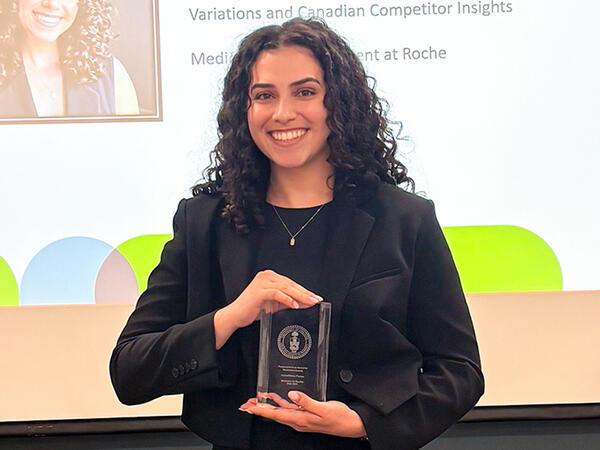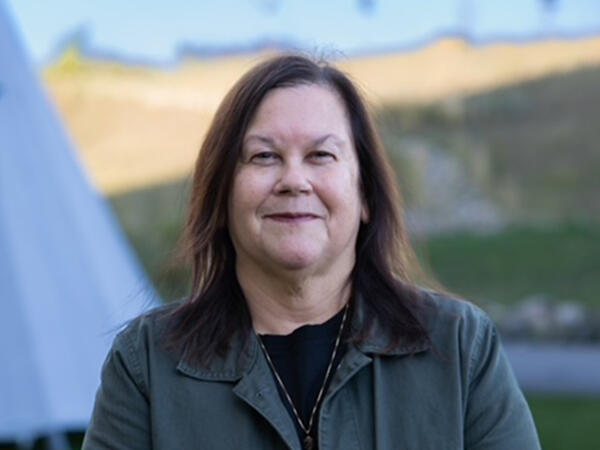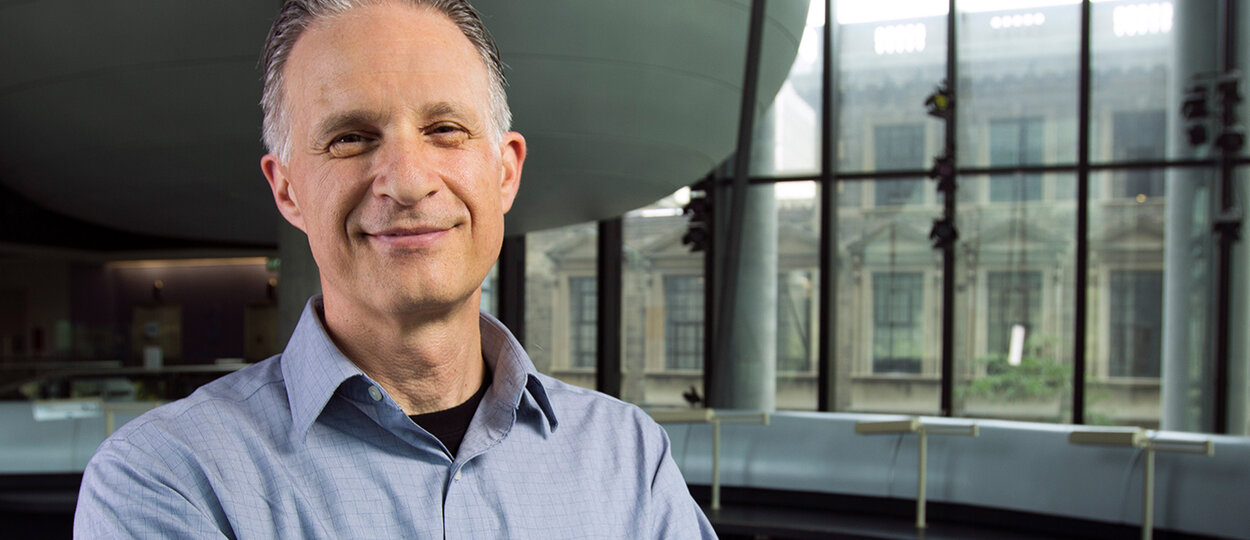New Canadian Foundation for Pharmacy funding supports research on virtual clinical pharmacy services
Last spring when the COVID-19 pandemic hit, Sunnybrook Odette Cancer Centre’s pharmacy team pivoted their practice to provide patient services while minimizing risk of COVID-19 transmission.
“Within one week we were providing services like patient follow-up, counselling and education virtually or over the phone,” said Carlo DeAngelis, a Clinician Scientist at the Leslie Dan Faculty of Pharmacy.
The pandemic accelerated the transition to virtual services delivery, but it always interested DeAngelis. He explains that 60 to 70 per cent of oncology pharmacy services were virtual before the pandemic, but COVID-19 provided a unique opportunity to conduct research to inform more efficient care in the future.
Their recent Canadian Foundation for Pharmacy's Innovation Fund grant will allow DeAngelis' team to understand the value of delivering clinical pharmacy services virtually from the patient’s perspective. They also hope to gain insight into which groups of patients benefit most from virtual clinical pharmacy consultation services.
“We look at each patient’s counselling needs along a continuum,” said DeAngelis. “Using standardized questionnaires to assess patients’ baseline health and medication knowledge, we plan to develop tailored strategies to move them along the continuum.”
DeAngelis explains this personalized approach to patient counselling is new since all patients currently typically receive the same counselling. This research will help identify patients with strong baseline knowledge who may require less contact, allowing pharmacists to spend more time with those needing more education or follow-up.
“We often hear about expanding pharmacists’ scope of practice, which may include things like administering vaccines, prescribing medications and treating minor ailments,” said DeAngelis. “We’ll need to accommodate these added services within our existing practice so finding efficiencies is critical.”
“I think virtual services are here to stay. Many patients prefer it, particularly those in the younger age group, so we must be ready.”
One efficiency that DeAngelis and his team identified is conducting patient medication histories by phone prior to the patient’s treatment appointment. If pre-existing conditions or potential drug interactions are detected, pharmacists can plan medication modifications accordingly. For example, if a patient is taking medication to prevent blood clots, the pharmacist can devise a custom drug regimen to reduce risk of bleeding.
The COVID-19 pandemic will pass, but DeAngelis says the lessons learned about the delivery of pharmacy services during the pandemic should stimulate a long-term paradigm shift within the profession.
“I think virtual services are here to stay. Many patients prefer it, particularly those in the younger age group, so we must be ready,” said DeAngelis.
“This research will provide evidence to support this transition, while identifying efficiencies that will allow pharmacists to provide the expanded services that they’re being called upon to deliver.”
Advance ground-breaking cancer research at the Faculty.
Donate to the Centre for Pharmaceutical Oncology.
More News
Image

Research team aims to co-design diabetes and dementia support programs that meet community needs
Network for Health Populations funding will support collaborative project to improve health outcomes for immigrant communities in Mississauga.
Read More
Image

Pharmaceutical industry resident finds growth in new challenges
Pharmaceutical Industry Residency Program Award recipient AnnaMaria Passas gained new skills through residency and research project to improve marketability in industry.
Read More
Image

Pharmacy alum sees change in acceptance of Indigenous cultures in health care
During Deborah Emery’s 40-year pharmacy career, she provided care in Sioux Lookout, Thunder Bay and Manitoulin Island.
Read More
